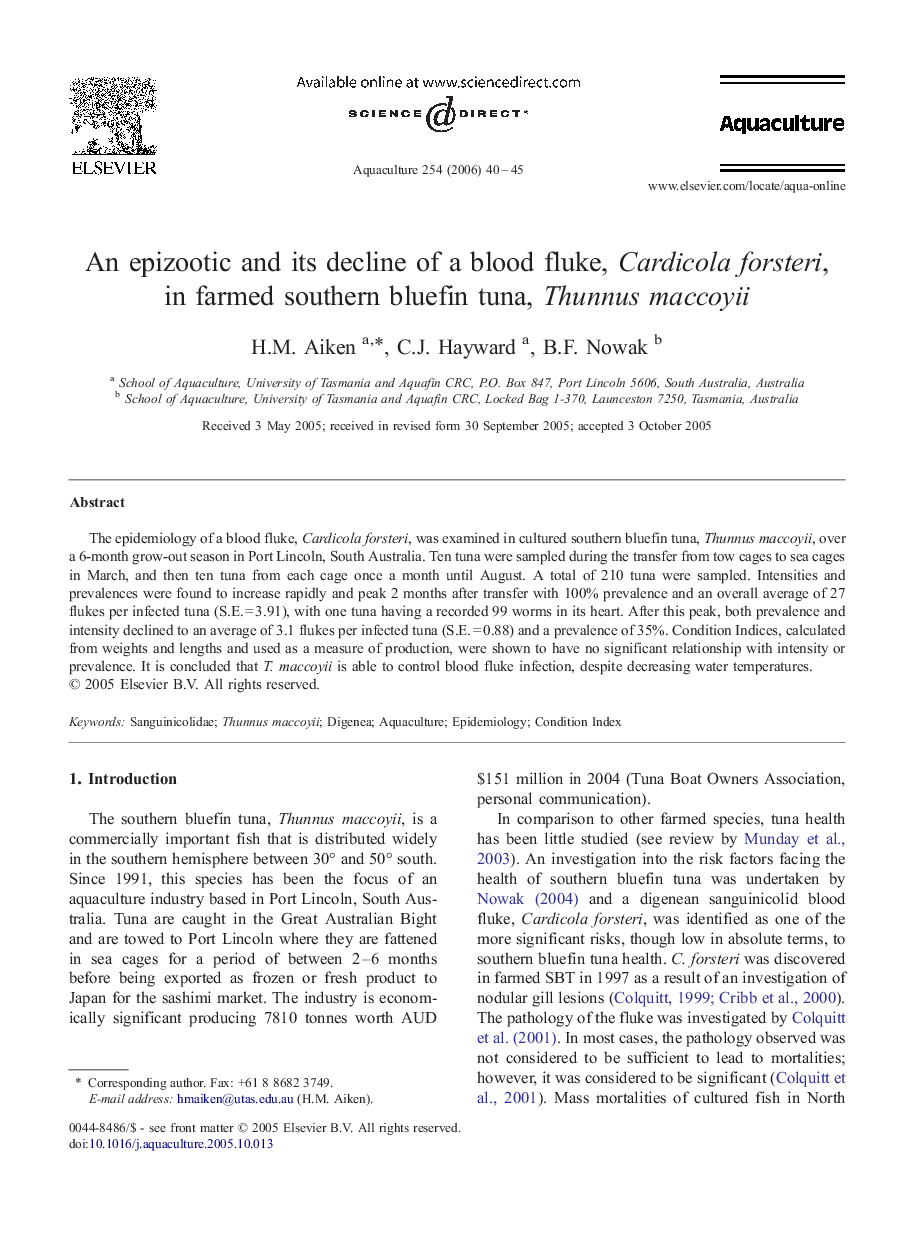| کد مقاله | کد نشریه | سال انتشار | مقاله انگلیسی | نسخه تمام متن |
|---|---|---|---|---|
| 2425974 | 1552987 | 2006 | 6 صفحه PDF | دانلود رایگان |

The epidemiology of a blood fluke, Cardicola forsteri, was examined in cultured southern bluefin tuna, Thunnus maccoyii, over a 6-month grow-out season in Port Lincoln, South Australia. Ten tuna were sampled during the transfer from tow cages to sea cages in March, and then ten tuna from each cage once a month until August. A total of 210 tuna were sampled. Intensities and prevalences were found to increase rapidly and peak 2 months after transfer with 100% prevalence and an overall average of 27 flukes per infected tuna (S.E. = 3.91), with one tuna having a recorded 99 worms in its heart. After this peak, both prevalence and intensity declined to an average of 3.1 flukes per infected tuna (S.E. = 0.88) and a prevalence of 35%. Condition Indices, calculated from weights and lengths and used as a measure of production, were shown to have no significant relationship with intensity or prevalence. It is concluded that T. maccoyii is able to control blood fluke infection, despite decreasing water temperatures.
Journal: Aquaculture - Volume 254, Issues 1–4, 28 April 2006, Pages 40–45